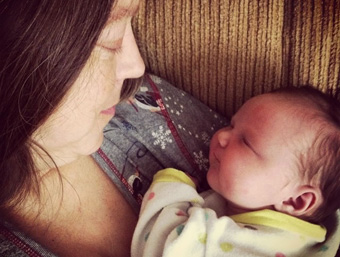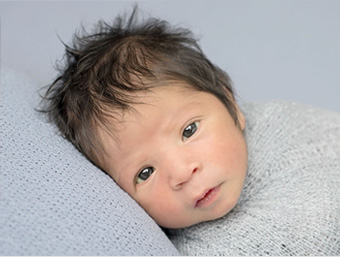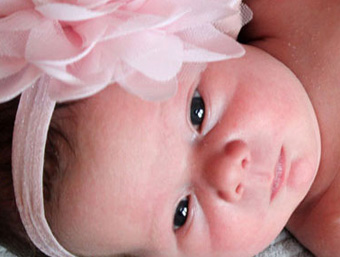 Pregnancy is not recommended after endometrial ablation. Why? Because each pregnancy is at much higher risk because of the damage endometrial ablation causes to both the lining of the uterus and the muscle of the uterus.
Pregnancy is not recommended after endometrial ablation. Why? Because each pregnancy is at much higher risk because of the damage endometrial ablation causes to both the lining of the uterus and the muscle of the uterus.
Pregnancy does happen after ablation…sometimes intentional and sometimes accidental. Estimates are approximately 0.7% of patients who have an endometrial ablation will accidentally become pregnant. There are no estimates on the number of women who intentional become pregnant after a uterine lining ablation procedure.
Although each pregnancy is at high risk, successful pregnancy and a healthy baby are sometimes possible after having an endometrial ablation.
Some patients who have an ablation will desire pregnancy after their procedures. Many will have had a tubal ligation and will ask us about the possibility of tubal ligation reversal and the risks of pregnancy after endometrial ablation.
The tubal reversal doctors of A Personal Choice have dedicated this series of articles to these women seeking more information about pregnancy possibilities after ablation. This is the third article in our series on endometrial ablation, tubal reversal, and pregnancy. This article will present information from the two largest medical studies of pregnancy outcomes after endometrial ablation.
Readers are advised to read the preceding articles in this series:
Pregnancy After Endometrial Ablation And Tubal Reversal
Tubal Ligation Reversal and Ablation
 Our specialty center is dedicated to corrective tubal surgery and tubal ligation reversal. As of 2022 we have performed over 15,000 reverse tubal ligations.
Our specialty center is dedicated to corrective tubal surgery and tubal ligation reversal. As of 2022 we have performed over 15,000 reverse tubal ligations.
We maintain a pregnancy database and the success rates of pregnancy after tubal reversal can be as high as 90%.
Our patients come from across the United States and from other countries throughout the world.
Many of these women will have unique fallopian tube anatomy and types of tubal ligation, for example, the Uchida tubal ligation, Irving and Parkland tube tying procedures, and the Essure and Adiana tubal blockage procedures.
Although we have maintained extensive statistics on our tubal reversal patients, we have not compiled statistics on how many of out patients have had endometrial ablation but we have had many of our patients become successfully pregnant after endometrial ablation.
More information: Pregnancies After Endometrial Ablation
A few of our patients will have had endometrial ablations and will come to have tubal ligation reversal.
Pregnancy After Ablation: United Kingdom
A 2017 study in the United Kingdom identified 274 pregnancies after endometrial ablation. In all, 85% of pregnancies from ended in abortion, miscarriage or ectopic pregnancy. Pregnancies that continued had high rates of preterm delivery, caesarean delivery, caesarean hysterectomy, and morbidly adherent placenta. Case reports also frequently described preterm premature rupture of membranes, intrauterine growth restriction, intrauterine fetal demise, uterine rupture, and neonatal demise.
A UK research team reviewed the outcomes of 70 pregnancies after endometrial ablation. In this study, 31 of the 71 pregnancies identified were live born. Of these 31 live born pregnancies, 4 infants died and 31% were born before 37 weeks. One out of four patients had very adherent placentas.
This review illustrates that pregnancy after endometrial ablation is possible, but is not without risks and complications. Although it is difficult to generalize, this study suggest about 50% of all pregnancies after endometrial ablation will make it to fetal viability (>24 weeks) and of these approximately 1 out of 3 will be born before term (37 weeks). Some infants will die as a result of premature birth and some women will have very adherent placentas.
Pregnancy After Uterine Ablation: Australia
A population based study in Australia and New South Wales in 2021 examined 18, 559 women with an endometrial ablation, 575 (3.1%) had a post-ablation pregnancy of at least 20 weeks’ gestation. The researchers found women who had pregnancy after endometrial ablation had higher rates of cesarean delivery (43%), preterm birth (13%), twin or higher order pregnancies (9%) and stillbirth (13.3/1000 births) pregnancies.
An Australian group of researchers published a review on pregnancy after uterine ablation in 2003. This group was able to identify 43 pregnancies after uterine ablation. Of these pregnancies after uterine ablation, 17 progressed beyond 20 weeks gestation. One of the successful pregnancies was a planned pregnancy, which occurred after endometrial ablation and a tubal ligation reversal.
Tubal Reversal And Endometrial Ablation: Is Pregnancy Possible?
A tubal ligation reversal and natural pregnancy after an endometrial ablation is possible. Many women will need to be aware of the risks and complications of these pregnancies.
 Since endometrial ablation was first introduced as a treatment to decrease heavy menstrual periods, medical researchers discovered and reported on some serious complications associated with pregnancy subsequent to endometrial ablation: premature birth, fetal death, abnormal placental attachment resulting in emergency hysterectomy, and some maternal deaths.
Since endometrial ablation was first introduced as a treatment to decrease heavy menstrual periods, medical researchers discovered and reported on some serious complications associated with pregnancy subsequent to endometrial ablation: premature birth, fetal death, abnormal placental attachment resulting in emergency hysterectomy, and some maternal deaths.
As endometrial ablation has become widely performed, the medical literature has become more balanced and has also revealed some pregnancy success stories. Overall, the risks and complications for women in pregnancy are increased after an endometrial ablation; however, the medical community still has a poor understanding of the effects of endometrial ablation upon pregnancy.
Pregnancy After Reversal And Uterine Ablation: Our Advice
The next article in our series is Endometrial Ablation and Tubal Ligation Reversal: Advice.
We will offer advice on pregnancy and tubal reversal after uterine ablation. We will provide some suggestions on who may be a candidate for tubal reversal and what steps can be taken to optimize the chance for pregnancy success after an endometrial ablation procedure.
Medical Studies On Pregnancy After Endometrial Ablation
1. Pregnancy following endometrial ablation: a review article. Hare AA, Olah KS. J Obstet Gynaecol. 2005 Feb;25(2):108-14.
2. Pregnancy following endometrial ablation: case history and literature review. Cook JR, Seman EI. Obstet Gynecol Surv. 2003 Aug;58(8):551-6.
3. A study of pregnancy after endometrial ablation using linked population data. Acta Obstet Gynecol Scand. 2021 Feb;100(2):286-293
4. Pregnancy after endometrial ablation: a systematic review. BJOG. 2018 Jan;125(1):43-53.
Can you get pregnant after tubal reversal and endometrial ablation?
Tubal reversal, even if you have had an endometrial ablation, can be a good way to get pregnant even after you’ve had a sterilization procedure.
Dr. Charles Monteith is the Medical Director of A Personal Choice. He is widely considered one of the best tubal reversal surgeons in the United States. Patients travel to him from across the US and even world wide for reversal surgery.
He has performed many tubal reversal procedures on women who have had endometrial ablation. If you are having regular periods then he would consider you a reasonable candidate for reversal surgery.
If you are considering tubal reversal after endometrial ablation then you should look into having reversal surgery with Dr. Monteith
To learn more about why Dr. Monteith is considered one of the best doctors for reversal surgery you should watch his video below. He has many other videos on his reversal website.
For more videos visit the video section of his website: Dr. Monteith’s tubal reversal videos










